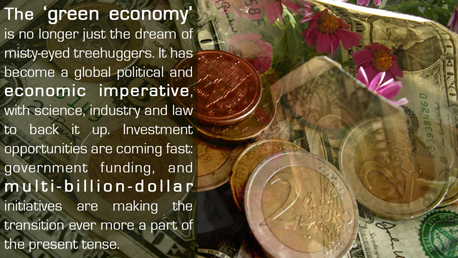
HotSpring.fm :: The private investment fund Ceres, a group of institutional investors, has promised to devote $10 billion to investment in clean energy sources. The news comes as 3 of the world’s major oil companies call for coordinated policy on how to face climate change, constrain emissions, and a couple of months after 150 global corporations asked for a major boost in subsidized research into transitioning to clean energy technologies.
The Financial Times reports “A group of nearly 50 institutional investors has pledged to invest at least $10bn (£5.1bn) in environmental technologies and to incorporate ‘green’ standards in investment decisions”. The fund’s president, Mindy Lubber, said during the press conference at UN Headquarters in New York, “This action plan reflects the many investment opportunities that exist today to put a dent in global warming pollution, build profits and benefit the global economy”.
The cost of the climate change burden is increasingly on the minds of corporate leaders, financiers and investors, and the glittering potential of economic windfall in pioneering the green economy is catching the eyes of investors and political leaders. Bio-ethanol, a crop-based fuel source, considered cleaner than fossil fuels, and having the benefit of being a renewable fuel source, has shown tremendous potential for financial growth.
In July 2006, Sentido.tv [a project of Hot Spring and Quipu's publisher], reported that:
The global wind-generation resource has been estimated at 72 terawatts, 40 times the entire global demand for 2000. Eliminating peat bogs and other highly vulnerable ecosystems from that resource potential will cut into the global capacity, but at 40 times demand, or 20 times or even at 10 times, there is clearly room to work with.
Finding the right combination of resources, in terms of cost-effective construction and maintenance, infrastructure development and ugrading, and stabilizing the role of consumers in both production and usage (solar and wind energy permit fitted individual homes to become production mechanisms expanding grid potential), will allow for the creation of a far more efficient and by extension, economically viable and sustainable energy market. This could be extended to a global scale, if investment accurately discerns and follows opportunity. [Complete Text]













No comments:
Post a Comment